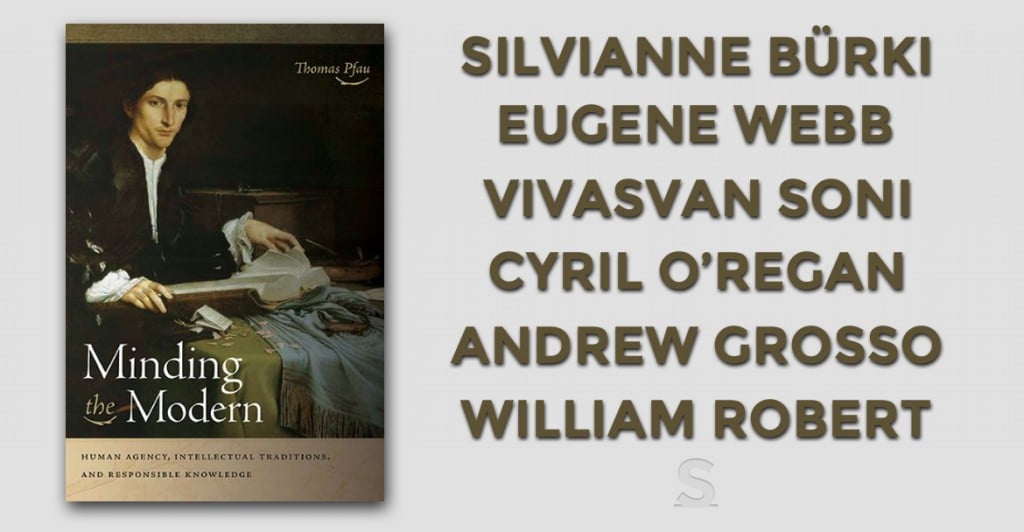Justin Tse writes about reading as a survival tactic:
Let me finish, then, on a final personal note. Artur Rosman, a writer of no small notoriety in the Catholic blogosphere, is running a lengthy Patheos interview with Pfau on Minding the Modern concurrently with our forum. Although he is my friend, I am not trying to plug his blog here; that would, after all, be a form of utilitarianism that Pfau would condemn. Rosman’s loyal readership will already know of his openness, even of his vulgarity, in discussing his financial woes in the modern capitalist system. He has given me personal permission to say that during one of those more stressful periods, he stayed up late at night reading Minding the Modern. Like the contributor with whose story I began, Rosman also found it impossible to skim the book; it was like the account of eighteenth-century nominalism, the forgetting of the person and the disembedding of the will from the conceptual tradition of human agency, was guiding him to understand the intellectual origins of the arbitrariness that he continues to face as a person publicly on the margins of the market economy. Rosman found consolation in the personal engagement with the living concepts of “will” and “person” so that he could continue to exercise his human agency in a world that militates against it. It is that recovery of the sources of action to which Pfau aims. As St. Augustine might have said, take up and read—for to read is to act, and to act is to live.
This is Justin’s humbling conclusion to his introduction of the latest Syndicate Theology Symposium on Thomas Pfau’s Minding the Modern. The section of Pfau’s book criticizing Smith’s theory of sentiments reads like a surrealist novel in the tradition of Gombrowicz’s Ferdydurke, or Sartre’s Nausea. I could see not only where all those 20th century modernist classics came from, but also how frightening close the precariousness of my life was like their narratives. That’s a very uncomfortable insight. At the same time, it shows that big books aren’t about winning the publishing and academic conference beauty contest.
Then there’s also the hope of imagining our world otherwise, coming to know, suspecting, that this nominalist dispersion isn’t the only way to live as a person, or to arrange society.
Now, if I wanted to continue the outrage of begging I could reach for something like yesterday’s second reading, which makes Marx look like a choir boy and Francis like a Wall Street fatcat:
Come now, you rich, weep and wail over your impending miseries.
Your wealth has rotted away, your clothes have become moth-eaten,
your gold and silver have corroded,
and that corrosion will be a testimony against you;
it will devour your flesh like a fire.
You have stored up treasure for the last days.
Behold, the wages you withheld from the workers
who harvested your fields are crying aloud;
and the cries of the harvesters
have reached the ears of the Lord of hosts.
You have lived on earth in luxury and pleasure;
you have fattened your hearts for the day of slaughter.
You have condemned;
you have murdered the righteous one;
he offers you no resistance.
Oh yes, capitalists should take pause–and I’m sure you saw some weirded out lectors yesterday.
But, anyway, I refuse to stoop down to such tactics!
Do take a look at the Syndicate Symposium on Professor Pfau’s book. The participants are Vivasvan Soni, Silvianne Burki, Andrew Grosso, William Robert, Cyril O’Reagan, and my former professor Eugene Webb.
While you’re at it, take a look at Part 1 and Part 2 of my interview with Thomas Pfau.
OK, here’s where I erase myself:
But I do still have that PayPal donation button on my homepage . . . I suppose it’s no coincidence that some weeks ago I designated today as my “call for rent assistance” day. That’s what I’m doing right now.

















